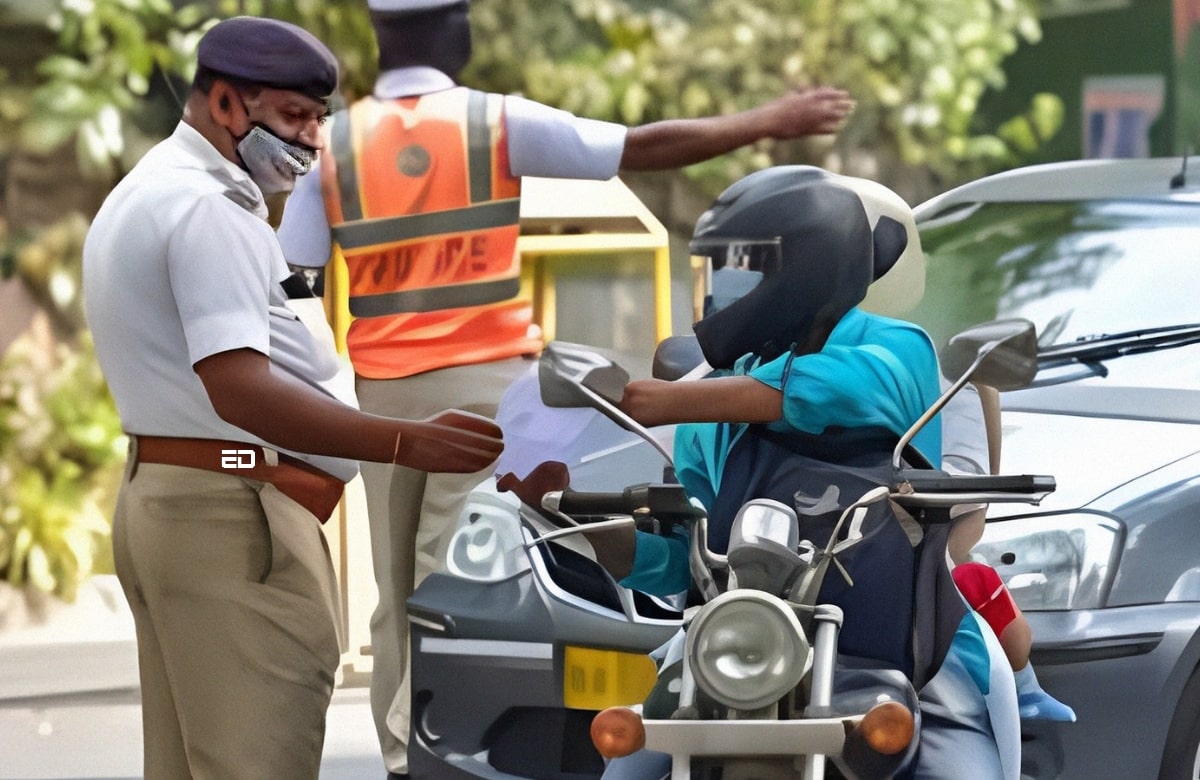Breaking the rules is the new normal now. Something that Gen Z feels is cool. Youngsters want to feel that adrenaline rush, by driving, taking their father’s car, going out with their friends and testing the speed limit, like there’s no tomorrow. And if the police stop them, their relatives turn out to be some important person who comes to their rescue.
But, Why Does Nobody Follow Traffic Rules In India?
The answers to this question are multiple. The first one is the theory of planned behaviour, which is critical in explaining road traffic violation behaviour. The perception of what is ‘acceptable’ also tells us about this kind of behaviour.
In his book, ‘Republic of Beliefs’, former Chief Economic Advisor, Kaushik Basu, argues that new laws such as the Motor Vehicles Act amendment are just “ink on paper” and can bring about a change in people’s behaviour only as much as they can change their beliefs about what other people may or may not do.
Therefore, it is the so-called focal points people rely on, implying that their choices enable them to guess what others, with a common cultural background as theirs, are likely to do.
For example, in India, there is a reasonable proportion of road users who prefer riding vehicles without wearing helmets, so any individual who has recently learnt to drive also prefers not to wear a helmet while riding because of the behavioural rule that says helmets are not worn by all motorists while riding.
Economists Daron Acemoglu and Matthew Jackson drew a framework which says that a road user must choose a behaviour or an action for particular types of strategic interactions with other road users.
For instance, in a congested urban road, compliance with rules enforced by hefty penalties will lead to full compliance, given that other road users can act as whistle-blowers and expose rule offenders.
Thus, the ‘everyone does it’ attitude is the main reason behind people casually breaking traffic rules.
Also Read: India Makes Big Foray In Formula 1 But Not Through Racing
The Impact:
Ford India conducted an interview-based survey of 1,561 car drivers, called ‘Cartesy 2.0’, in which the respondents had to answer 31 multiple choice questions, as is done by the RTOs (Regional Transport Office). 60% marks are enough for applicants to gain a learning licence in actual RTO tests.
In the survey, justifications given by respondents for being non-compliant with the norms included urgency to reach their destination, temptations like unmanned signals or nobody was watching, distractions due to the use of mobile phones, and ‘everyone else is breaking the rules’.
This is why road accidents have increased manifold in India. The recent car crash case which took the lives of two people, took the country by surprise.
The sports car which a 17-year-old boy was driving at 200km/hr, an illegal act, hit a motorcycle on May 19, in Pune. Moreover, the culprit allegedly handed ₹ 3 lakh bribe to the doctors to manipulate the blood samples.
These horrific incidents demand instant policy roadmaps and stricter actions. People must be incentivized to drive safely. Bridging the gap between making laws and implementing them is the need of the hour.
Image Credits: Google Images
Feature image designed by Saudamini Seth
Sources: The Times of India, The Print, NDTV
Find the blogger: Unusha Ahmad
This post is tagged under: car, traffic rules, signals, police, Porsche, Ford, RTO, India, GenZ, economist, advisor, road rage
Disclaimer: We do not hold any right, or copyright over any of the images used, these have been taken from Google. In case of credits or removal, the owner may kindly mail us.
Other Recommendations:
ResearchED: Is EV More Harmful To The Environment Than Petrol/Diesel?




































